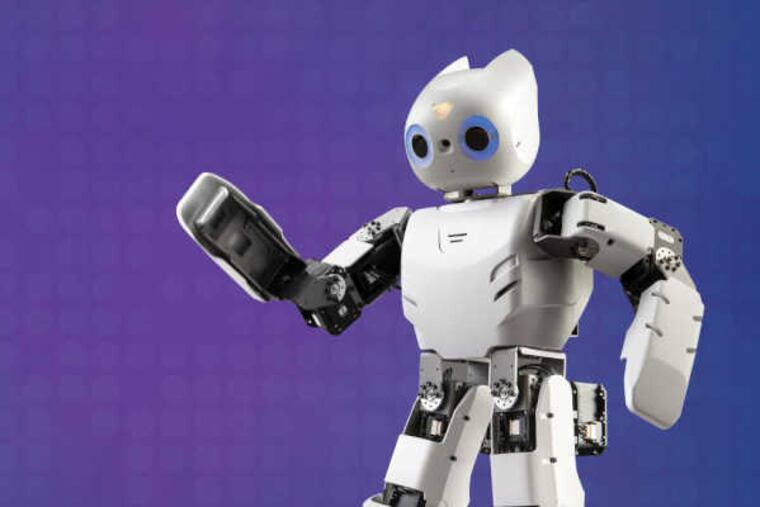Robot city, Philly: How will low-wage workers survive?
It's fine to talk about labor theory and the workforce of the future. Meanwhile, what's going to happen to the parking garage attendant who loses her job when the garage installs an automatic ticket-taker?

It's fine to talk about labor theory and the workforce of the future. Meanwhile, what's going to happen to the parking garage attendant who loses her job when the garage installs an automatic ticket-taker?
That was on Jean Kendrick's mind Thursday as she listened to panelists at a Philly Tech Week event titled "Robot City: Automation and Low-Wage Workers."
"Something needs to be put in place for these people," said Kendrick, raising her hand to question the panel. There's lot of talk about "retooling" people who lose their jobs to automation, she said, but that can take years and unemployment insurance runs out in six months.
Kendrick directs career services for the Urban League of Philadelphia. Her friend worked as a parking garage attendant, collecting money and receipts. Then the garage installed a machine, and Kendrick's friend was out of work.
"She lost her job to automation," Kendrick said. The friend was unemployed, then landed a lower-paying overnight job in a garage. "She'll never catch up."
Panelists at Thursday's session at the law offices of Schnader Harrison Segal & Lewis LLP had mixed views of the impact of workplace automation.
Michelle J. Johnson, an assistant professor at the University of Pennsylvania with a doctorate in robotics from Stanford University, said she sees automation as a glass half full. People with disabilities can return to the workforce with the help of robots, for example. Or a robot can help a human work. In therapy, a robot can repeatedly lift a patient's leg, freeing the therapist for more tasks while preventing therapists from becoming injured through repetitive strain, Johnson said.
"As the jobs that robots take on evolve, the job humans do will also evolve," she said.
The whole notion of robots is a distraction, said economist Larry Mishel, president of the progressive Economic Policy Institute in Washington. More significant, he said, are the declining wages and power of workers and the corresponding increase in power among the nation's wealthiest.
"Do not fear the robots," he said. "The challenge is good jobs at good wages."
Yes, he said, capital invested in machinery is replacing human labor; that's not new. People ride elevators but no longer encounter the operators who used to operate doors. If automation were as big a threat as pundits say, Mishel said, "you would expect unemployment to go up every year, but it hasn't."
It's easy to blame any loss of jobs to automation on macro-corporate forces, but individual consumers need to acknowledge their own culpability, said longtime community organizer Kati Sipp, managing director for the National Guestworkers Alliance.
"It is our choice as consumers that impacts low-wage workers," she said. When people tap on apps to make purchases, when they select their Wawa hoagies via touch-screen instead of talking to deli clerks, they should ask themselves, "Whose world am I disrupting? What is my responsibility to that person whose life is being disrupted?"
In response, she said, consumers should become advocates for new ways of protecting the benefits, such as health insurance, paid time off, or retirement, that traditional workplaces provide. "We need benefits portability," she said.
Community Legal Services senior employment attorney Nadia Hewka said she's pessimistic about the interplay of automation and the workforce.
"When there's displacement because of a trade issue, it's more visible," Hewka said. There are federal dollars for training workers whose jobs are lost when companies move jobs overseas, but "we don't have the same ability to identify people who are affected by technological change," so they don't have the same remedies available to them.
After the session, as people chatted over wine and cheese, Rich Jones, cofounder of Gun.io, a company that works in artificial intelligence, said, "There is an untested assumption that lower-income jobs will be first to be automated. It's a lot easier to build a robot cardiologist than to build a robot maid.
"The maid has a much more dynamic job," he explained. Cleaning environments change and obstacles vary, but "cardiology is pattern classification, which is exactly the kind of problem that machine-learning algorithms are better at solving than humans."